Fertilizing your lawn is one of the tasks that should be included on the list of annual lawn and backyard maintenance chores, right alongside trimming and mowing. But did you know that if you fertilize the lawn at the right time of day, it will be more beneficial to the grass?
The majority of people are aware that the morning is the perfect time to water your lawn. However, there are only a few that are aware of the best time to fertilize a lawn in order to attain the best outcomes. Continue reading this article to find out the best time of day to fertilize lawn!
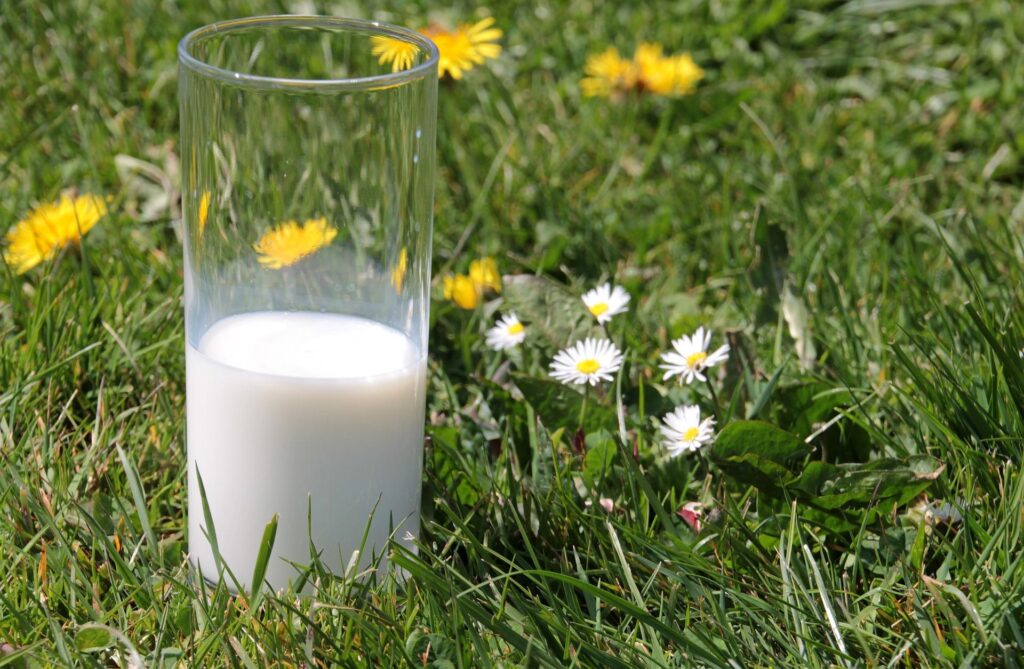
Fertilizer is an essential component when it comes to growing a lush lawn and ensuring that it stays green.
Fertilizers can be harmful to the grass if not applied properly. Therefore, it is essential to take into consideration the current air temperatures and the weather forecast before fertilizing your lawn.
Regarding greening up the turf, there are some do’s and don’ts depending on the fertilizer you use, your grass type, and local climate.
There is a great deal of confusion regarding the best methods for fertilizing lawns. For instance, should you water before or apply fertilizer right before the rain? Should you apply the fertilizer in the morning or in the evening?
Continue reading. I will answer the question in title and more in the paragraphs given below.
There is no one specific perfect time of day to fertilize your grass. Everything is dependent on several environmental conditions. However, in general, early morning is the best time to fertilize a lawn.
Fertilizing early in the day enables the soil to benefit from cooler temperatures and soak up morning dew, which allows the soil to absorb more nutrients. That being said, you should never use fertilizer on your lawn on a scorching day, even in the morning. It may result in severe grass burns.
Why Should You Fertilize Your Lawn?
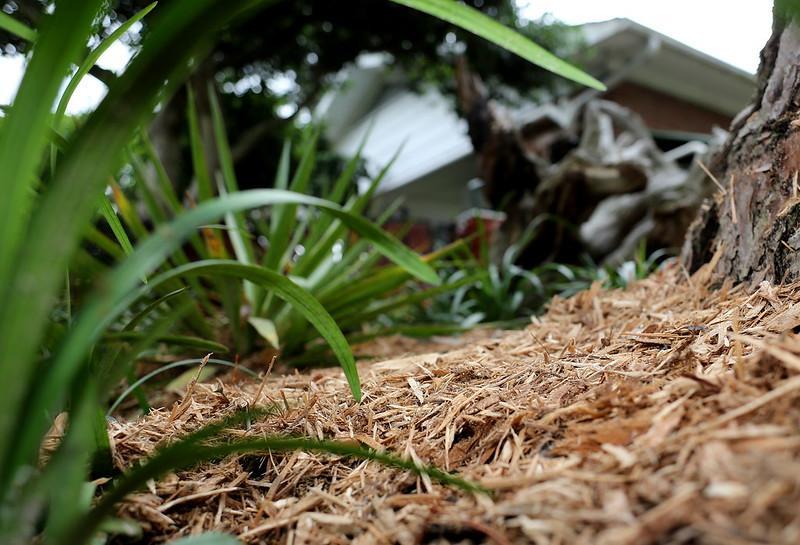
If you have a bare spot on your lawn, fertilizers can provide enough coverage to make them unnoticeable.
Turf grass needs certain nutrients, some of which your soil can offer, but most soils can’t, especially during the height of the growing season. Moreover, over time, your soil will naturally lose many of its nutrients.
Therefore, it is essential for you to replace these nutrients if you genuinely want to have a lawn that is lush and green.
The most common method to make up for the lost nutrients is to apply fertilizers. Fertilizers come in a variety of nutrient amounts, nutrient types, and release times. Here are a few reasons why you should fertilize your lawn.
Your Grass Will Be Green & Serene
Nitrogen is responsible for your lawn’s vibrant green hue. It also lessens weed issues, which contributes to the uniformity of the turf’s appearance. Many fertilizers contain nitrogen as a primary ingredient. So, it shouldn’t be a surprise that fertilizers will make your grass greener.
Your Grass Will Grow Faster
You are already aware of how crucial fertilizer is to the health of your lawn. But did you know that it will also accelerate the growth of your grass? You can’t just rely on your soil for great, robust plant life. If you use fertilizer, your outcomes will be much better.
Your Grass Will Be Thicker & Fuller
Since fertilizer strengthens your grass roots, they can absorb more water and nutrients easily. This not only makes your grass healthy but also tightens the soil in your yard and reduces the possibility of water gathering to create unsightly mud puddles.
RELATED: Aeration & Overseeding For Lawns: Is It Worth It? A Comprehensive Guide
Types Of Fertilizers Applications
There are several different classifications that can be applied to fertilizers. One way to think about them that makes sense is as “granular” and “liquids.” Granular and liquid fertilizers both provide plants with the same essential nutrients.
Therefore, in theory, plants are unable to distinguish between the two types. However, granular and liquid fertilizers both have distinct benefits that are dependent on the specific farming task at hand.
There are also organic fertilizers such as composted manure. However, these fertilizers must be broken down in the soil and are not typically utilized in lawn maintenance.
Nevertheless, to obtain the best benefit from any of them, it is helpful to know when it is good to add them to your turf. So, let’s have a conversation about that!
Best Time To Use Liquid Fertilizers On Your Lawn
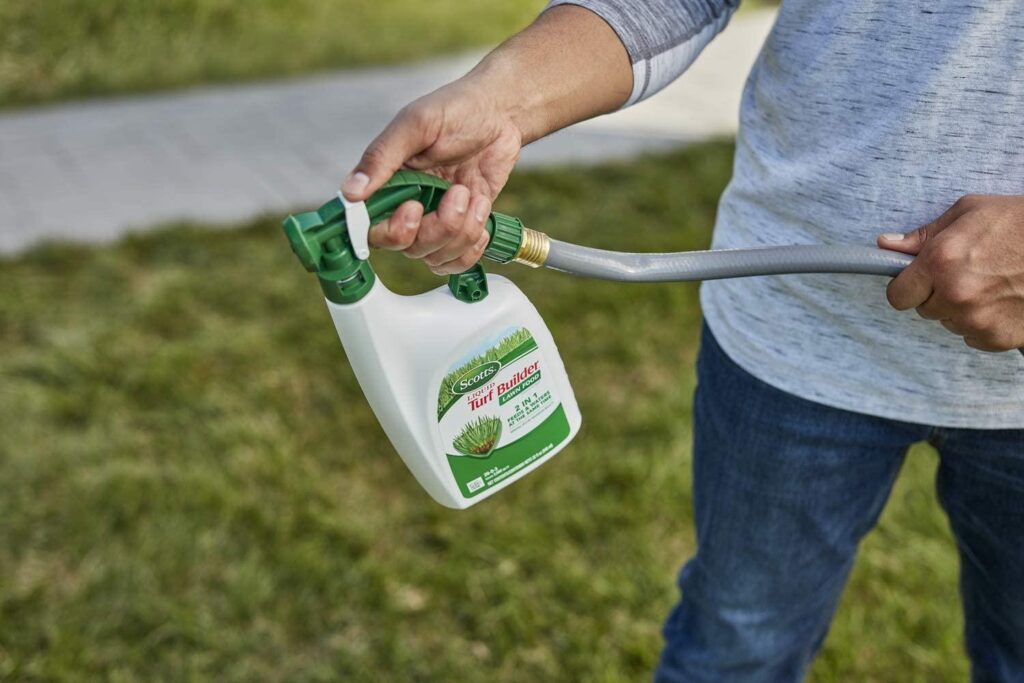
Scotts Liquid Turf Builder Lawn Food, Lawn Fertilizer.
Over the past few years, there has been a significant rise in demand for liquid fertilizers. They can be applied to the ground or the foliar surface of grasses. The response from your grass will be far quicker if you use liquid fertilizers.
The nutrients are virtually instantly available for absorption by the plant through its roots or leaves, which swiftly corrects any nutrient deficits.
On the other hand, liquid fertilizers do not provide nutrition to the grass for as long as granular fertilizer does. Therefore, it needs to be applied more frequently.
Additionally, the grass should be dry before beginning the process because any water that is already there will cause the formula to become diluted and less effective.
However, in some instances, the presence of moisture might actually assist in the distribution of liquid fertilizer throughout in a more efficient manner.
However, you still shouldn’t use this fertilizer after it has rained heavily because it could wash it into the ground.
When I use liquid fertilizer, my preferred method is to spread it around, let it rest on the grass leaves for a while, and then give the grass a quick washing with some water to flush the fertilizer off the grass leaves and into the ground below.
What Time Of Day Should I Not Use Liquid Fertilizers On My Lawn?
- During the hottest time of day.
- If there is a chance of heavy precipitation.
- When the grass is wet, either from recent precipitation or the morning dew.
What Is The Best Time Of The Day To Use Liquid Fertilizers On My Lawn?
- During the evening, when the temperature is often lower.
- When the grass is completely dry.
- Whenever there is no chance of precipitation in the forecasts for at least two days.
Some Pros Of Using Liquid Fertilizers
- Application uniformity
- It can combine with various crop protection products.
- Combining ingredients is a breeze.
- In-season and starter application.
- The simplicity of use and handling when required (once set up).
RELATED: Lawn Sprinkler Types | How To Choose The Best Sprinkler For Your Lawn!
Best Time To Use Granular Fertilizers On Your Lawn
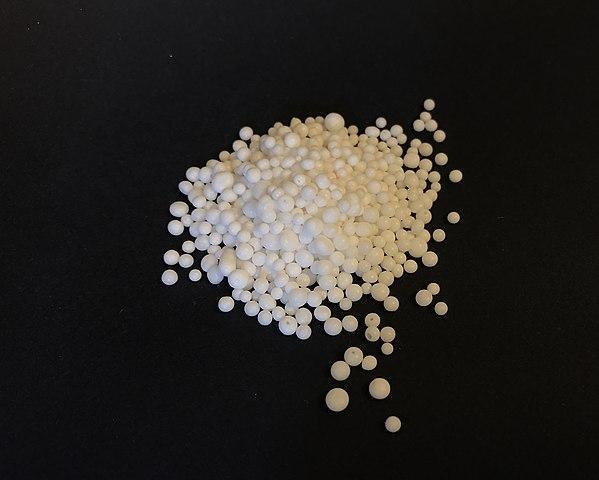
Granular fertilizer, often known as dry fertilizer, is a type of fertilizer that comes in dry pellet form.
Since grass roots can only take up nutrients in the liquid form, granular fertilizers take longer to supply nutrients to plants as they must first decompose and disintegrate in water present in the soil.
Therefore, applying a granular fertilizer to grass while it is still wet can cause the grass blades to become burnt or scorched.
If something like this takes place, your grass may develop patches of brown and yellow coloration, as well as a mottled look. Spreading water-soluble granular fertilizer should only be done when the grass is dry, and the temperatures are cool. However, this type of fertilizer still needs to be watered in to prevent leaf burn.
If there has been any significant rainfall, you should hold off on apply
ing granular fertilizer for at least one day after the rain has stopped. Also, the grass must be completely free of any moisture, including dew and irrigation water. In addition, be wary if there is any mist or fog outdoors, as this can also lead to wetness on the grass.
Granular fertilizers that are relatively water-insoluble, sometimes called slow-release fertilizers, can also be used. Since slow-release formulations have a lower risk of damaging grass leaves, the grass doesn’t need to be completely dry for their use.
What Time Of The Day Should I Not Use Granular Fertilizers On My Lawn?
- After it has rained.
- Before a severe storm that may cause runoff.
- When the temperature is at its peak for the day.
What Is The Best Time Of The Day To Use Slow-Release Fertilizers On My Lawn?
- Before a steady downpour.
- In the mornings, before the temperatures rise.
What Is The Best Time Of The Day To Use Granular Fertilizers On My Lawn?
- Before a steady downpour.
- During the evening, when the temperature is often lower.
- When the dew has dried by mid-morning.
RELATED: Will Grass Spread & Fill Bare Spots On Its Own? A Comprehensive Guide
Should You Fertilize Your Lawn Before It Rains?
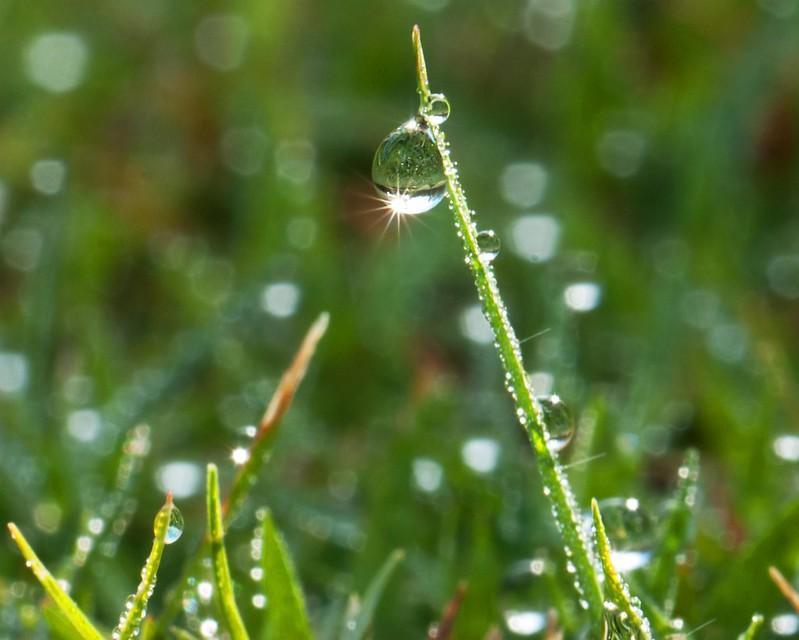
Fertilizer will be less effective when administered immediately before a heavy rainfall.
You shouldn’t worry about spreading your fertilizer before it rains as long as the conditions are somewhat calm or light. It should come as no surprise that water is necessary for plant growth.
In addition, water is also essential for assisting in the breakdown and absorption of the nutrients contained in fertilizer by the plant’s roots.
However, applying fertilizer right before it rains heavily will yield the poorest results. Why? Because heavy rainwaters generate runoff, which will more or less wash away your fertilizer before it even has a chance to decompose and be absorbed by the soil.
Pro Tip: It is also recommended that homeowners cut back on the amount of fertilizer they use during a drought because the chemicals found in fertilizers generate heat.
If you apply fertilizer to the grass when it is already dry and hot, the fertilizer will cause the grass to burn rather than help it grow.
Should I Fertilize In The Morning Or Evening?
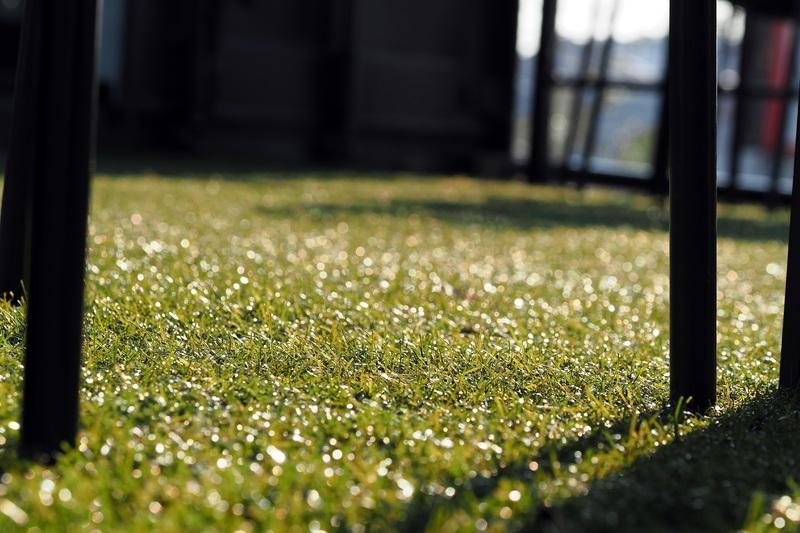
The best time to fertilize your garden is in the evening or morning before 8 AM.
Fertilizing grass in the morning or evening each has its own set of advantages, but it is typically advised that such products be used in the early part of the day whenever possible.
Here is why:
- Since the plants have not been drained by the heat of the day, they have a higher capacity to take in nutrients.
- Due to the presence of dew and the relatively cool temperatures, the application of fertilizer will not cause your lawn to become scorched.
- Early in the morning, plants that are lacking moisture will eagerly consume water that has been enriched with fertilizer.
- Winds blowing at a low speed will not cause an uneven fertilizer distribution.
Even though it is popularly thought that the best time to fertilize your lawns is during the day, there are instances in which the morning might not be the ideal time to do so. Here’s why:
Why Shouldn’t You Apply Fertilizer Early in the day?
One of the reasons why you should not fertilize early in the morning is the fact that the morning dew on your grass will make it overly wet. With most fertilizers, you should wait until your lawn is completely dry before applying fertilizer.
In addition, it is preferable to refrain from applying fertilizer when the weather prediction calls for a day of intense sunlight, heat, or heavy rain. If the daytime temperatures are forecasted to soar, the grass could end up becoming overly dry, and the compounds in the fertilizer could cause grass burns.
Similarly, in the event of a heavy downpour, the rain will remove all of the nutrients and fertilizer from your soil.
Can I Apply Fertilizer To Damp Grass?
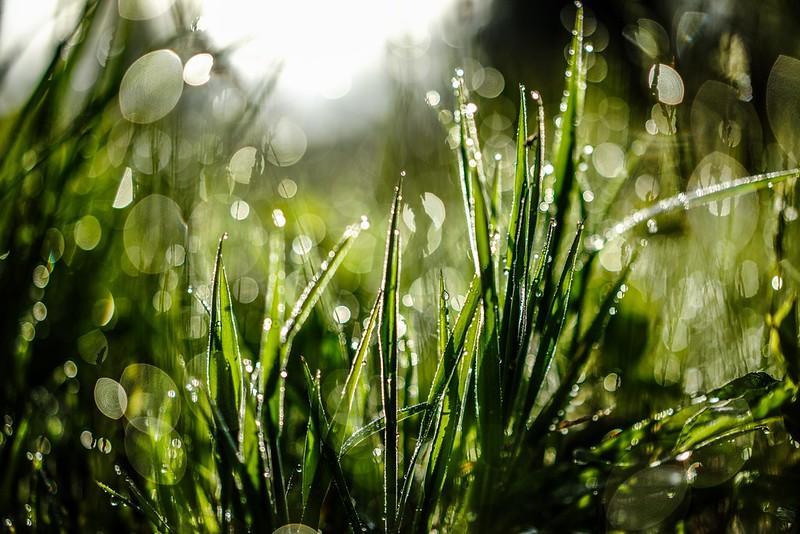
Most non-liquid fertilizers can typically be applied to wet grass but not to water-soaked soils.
There are some fertilizers on the market that can be applied to wet grass, but in order to get the most out of the majority of them, you should feed your lawn when the grass is dry.
If you want to be able to fertilize your lawn even when the grass is wet, you will need to be sure that the fertilizer you choose can withstand that level of wetness.
Also, ensure that the grass is not waterlogged and that you are applying a granular or liquid fertilizer designed to be diluted before application. In addition, applying foliar fertilizer to wet grass is a terrible idea at any time.
Final Thoughts
During the growth season, fertilizers play an essential part in maintaining the health of the grass and ensuring that it retains its lush and verdant color. Having said that, excessive use or use that is not correct will not provide desired outcomes. So, before making an investment in fertilizers, it is essential to do some research to see which ones will work best for your lawns, taking into account the type of grass you have, the lawn equipment you use, the season, and the time of day you intend to apply the fertilizer.
Sources For Further Reading
Turfgrass Fertilization: A Basic Guide for Professional Turfgrass Managers – The Pennsylvania State University Extension Service
Choosing Fertilizers for Home Lawns – University of Illinois Extension Service
Fertilizing Your Lawn and Garden – The Colorado State University Extension Service
Lawn Care: The Easiest Steps to an Attractive Environmental Asset – Cornell University Turfgrass Program
Editor’s Recommendations
Crabgrass Vs. Quackgrass | How To Tell The Difference & Which Is Worse?
Grubs In Lawn? Here Is How You Can Get Rid Of Them For Good!







